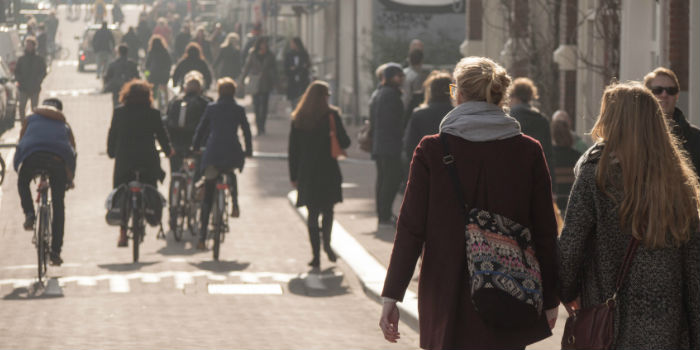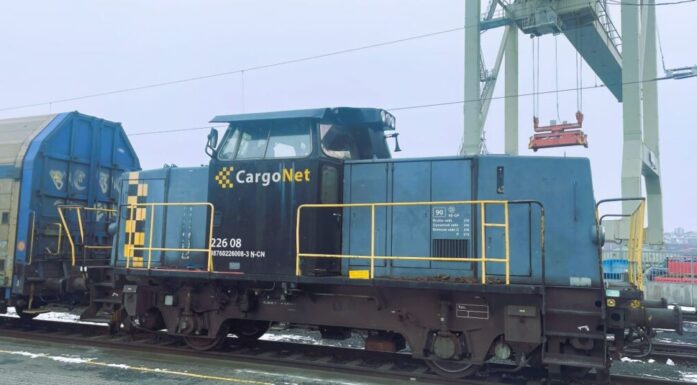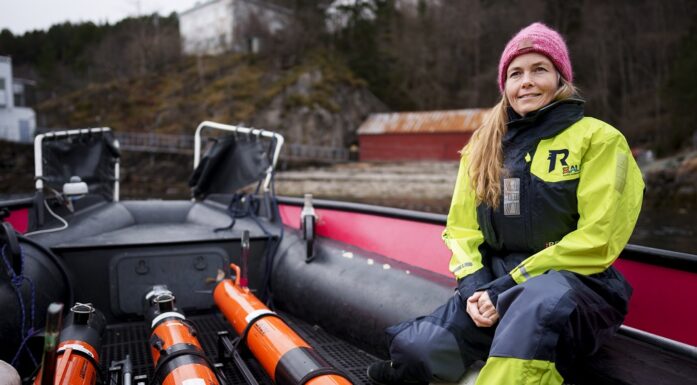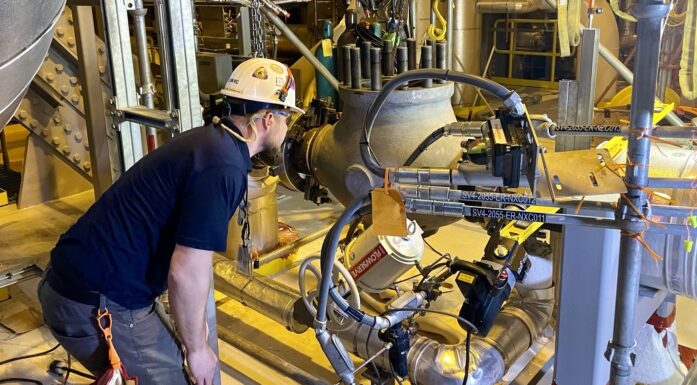Check your climate impact
Ducky will help you find out how much your car trip or yesterday’s dinner has affected the environment. The app creators hope that competing against yourself and your friends will contribute to reducing CO2 emissions.
Ducky is an app designed to motivate individuals and businesses to change their environmental habits, and to reveal the effects of their actions in everyday life. “Your choices make a difference,” says the entrepreneur who helped create it.
The app lets you log numerous activities, such as cycling, driving, grocery shopping and so on. You can also follow other users who log their activities. You and your friends can compete to save the most CO2.
“With Ducky, you can easily see the environmental impact of actions you take in everyday life and learn about why they’re important. We started our business in autumn 2014, and this past year we’ve developed a beta service with good support from Innovation Norway,” says Silje Strøm Solberg, co-founder of the company Ducky AS.
- You might also like: Turning climate pledges into political action
Based on calculations from NTNU
Today the service has 12 employees, as well as some volunteers. The company was established as a public limited company, meaning that any profits are reinvested to support the company and its purpose.
“Our goal is to create a business that is not only sustainable economically, but also socially and environmentally,” says Solberg.
“The company’s articles of incorporation state that all future profits are to go back to the company to further promote the objectives of sustainability. We hope this can be an inspiration to other businesses, since more and more people are choosing work that is meaningful. People are paying more attention to the attitudes that workplaces have to social development,” she adds.
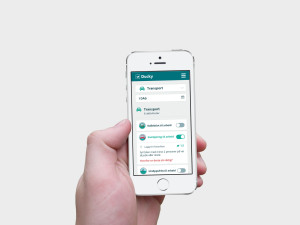
Ducky is available both as a mobile app and as a browser service. Says Solberg, “People want to contribute to improving the climate, but they wonder what they can do and how much it matters.”
But back to the app itself. How can an app actually tell you if you’re a climate offender or a climate role model? Or something in between? The answer lies in mathematical calculations.
“NTNU’s Industrial Ecology Programme is responsible for calculating the environmental impact and the actions available in Ducky. Their role is vital for this whole idea to work,” Solberg says.
“What makes these calculations special is that they’re based on Norwegian consumer and habit patterns, and NTNU is one of the first organizations in the world to conduct these types of calculations,” she explains.
Through the Research Council of Norway’s Large-scale Programme on Climate Research (KLIMAFORSK), the company is also collaborating with NTNU’s Department of Psychology and Friends of the Earth Norway (Naturvernforbundet).
“Ducky has handpicked the habits you can change. They are positive, effective and easy ones to get started with. At the same time they benefit your health, the local environment and the community. Establishing new habits will reduce CO2 emissions and be your own significant contribution to mitigating climate change,” says Solberg.
The app is currently in development and will be released in 2016. So far, however, there is a responsive browser version of Ducky, which means that it works on all platforms.
- You might also like: Climate footprint of nations website wins recognition
Wants to counteract apathy
According to Solberg, the idea for Ducky came about as a response to all the negative aspects of climate change.
She found that people felt it was difficult to make a difference on an individual basis. “Several of us recognized this frustration around climate issues and how difficult it was to make environmentally friendly choices in our daily lives,” she said.
It’s really difficult to figure out which products have the least impact on the environment, and which companies care about the future, according to the former NTNU student.
“It seemed like politicians were waiting for voters to demand change, and the voters were expecting the politicians to do something. We wanted to counteract the mechanisms that contribute to apathy – which is a major challenge of our time,” Solberg said.
Does that mean that we are just too lazy by nature, or is the cause of apathy lack of information and services that can facilitate action?
Solberg believes that people by nature genuinely want to make the best choice. Research has shown that when an environment or culture is set up so that it’s easy to make healthier food choices, or choose a more sustainable means of transport, then people willingly do it.
“But,” she says, “that’s not the way it is today. Until it gets easier to make everyday decisions based on what’s best for social, economic and environmental concerns, services that raise awareness and motivate change in our everyday habits have an important role to play – both for individuals and businesses.”
- You might also like: NTNU joins EU Climate-KIC programme
“Green shift” growing in the corporate market
One of Ducky’s goals is to call attention to the fact that a lot of people care. And not least, to make it easier for people to make—and broadcast—their environmentally friendly choices.
At the annual Pstereo music festival in Trondheim this year, Ducky’s app was put to a big test by all their volunteers. The company gained fruitful feedback that is providing plenty of fodder for further development. Right now, Ducky is working is to identify needs in enterprises.
This is where research and development contracts are likely to play a role. IFU is one of Innovation Norway’s grant subsidy programmes that are intended to promote the development of new products and solutions that have international potential. Ducky is betting big on this going forward.
“Our goal is to enter into an IRD partnership (Industrial research and development contracts) and develop Ducky for organizations. It’s important to engage employees in questions concerning environmental savings,” says Solberg.
So what has Solberg learned about Norwegians’ environmental habits—good and bad— having now worked with Ducky awhile?
“That many would like to do more, but don’t know how to contribute and whether it makes any difference,” responds Solberg. “We’ve also seen that a lot of folks are already making many good and environmentally friendly choices. For example, in Trondheim we’re seeing that overall more people are now cycling to work. Greener Trondheim (Miljøpakken)—a sustainable transport partnership—has contributed to this by making it easier to choose the biking option. By biking to work instead of driving for two days, you save about 10 kg in CO2 emissions, which is equivalent to one tree’s CO2 uptake per year.”
